– It’s a girl! –
BALTIMORE, MD – The Maryland Zoo in Baltimore is thrilled to announce the birth of a female chimpanzee, born on Friday, July 5, 2019, to 29-year-old chimpanzee Bunny.
The Zoo’s animal care staff had been keeping a close eye on the pregnant female, and were happy to observe her having an uncomplicated labor and delivery. Mom and baby have spent their first ten days together bonding in a quiet off-exhibit area.
“Bunny is very attentive and protective of her baby. She likes to hold the baby up and watch her move and often nuzzles her face,” said Erin Cantwell, mammal collection and conservation manager. “Bunny is also doing a great job of helping us by showing us the baby when her care team ask, which has allowed us to be able to observe her closely and make sure she looks good. The baby is nursing regularly and getting stronger every day.”
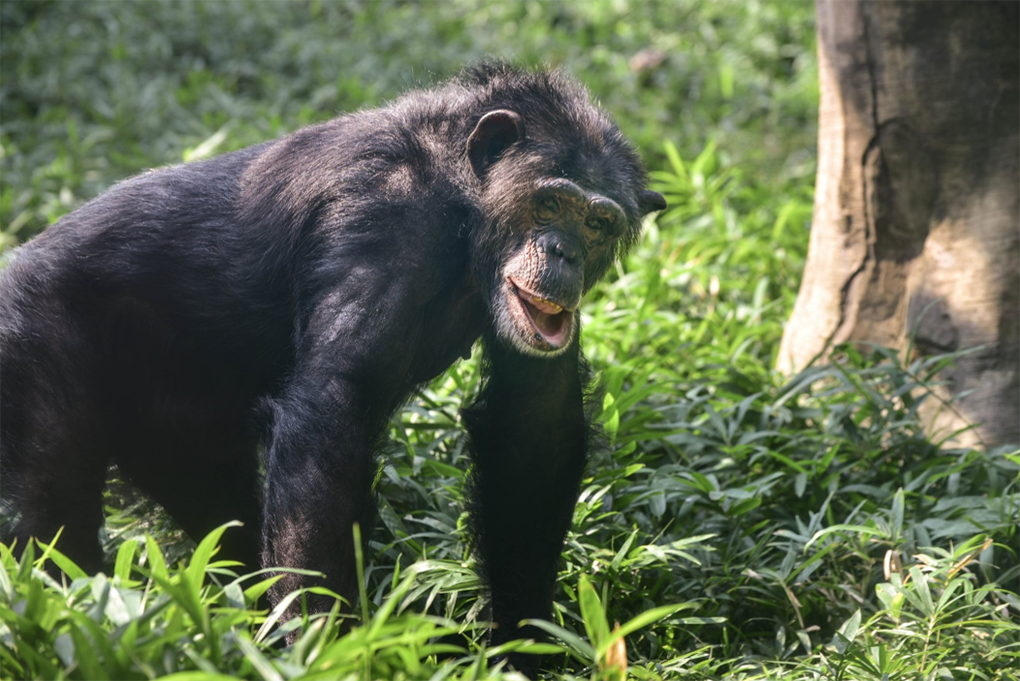
Chimpanzees (Pan troglodytes) are classified as endangered on the International Union for the Conservation of Nature’s (IUCN) Red List. One of the greatest threats to the wild chimpanzees is loss of habitat, the African forest, from commercial logging, agriculture and fires. Poaching and disease also put the wild population at risk.
The birth is the result of a recommendation from the Chimpanzee Species Survival Plan (SSP) of the Association of Zoos and Aquariums (AZA). SSPs provide breeding recommendations to maximize genetic diversity, with the goal of ensuring the long-term survival of the population and the health of individual animals.
Chimpanzee gestation is approximately 8 months long. Prenatal care begins once staff get a positive pregnancy test. The veterinary and animal care teams also performed routine ultrasounds on Bunny to make sure the baby was growing appropriately.
Since the birth, the Chimpanzee Forest team has monitored the pair closely to make sure that there are appropriate behaviors from both the mother and the infant, which is especially important because Bunny is mostly deaf, with slight hearing in one ear. Keepers believe she is able to hear and feel the baby when it cries loudly.
“We want to be as hands off as possible to allow mom and baby plenty of time to develop their relationship. Just like with human moms, there is a steep learning curve for both the baby and the mother in the first few days as they both adjust to this new way of life,” said Cantwell.
The tiny new addition looks like a miniature version of her mom, with fluffy black hair covering most of her body. She spends nearly all of her time cradled in Bunny’s arms or clinging closely to her back. Chimp babies usually weigh 2-3 pounds at birth. Adult chimp females weigh approximately 80-100 pounds, and males weigh 100-120 pounds.
“We are so excited to see Bunny flourish as a mom,” said Cantwell. “It’s great to watch an animal we care so much about experience this next step in her life. And, chimp babies are really quite adorable. We can’t wait to watch the baby grow up and achieve her own life milestones!”
Developmental milestones are similar to those for human babies. The care team will monitor the baby for important successes, such as the ability hold her head up on her own, for her to use her fingers and toes to grasp things, learning vocalizations and facial expressions, and teething.
Since Bunny is a first-time mother, the care team is managing her in a smaller group of chimps. This arrangement allows her to focus on caring for her baby, and not have to worry about the complex social dynamics of chimp society. “As Bunny becomes more confident and the baby becomes stronger, more members of the troop will be introduced to them, noted Cantwell. “The introductions will also benefit the development of younger troop members by allowing them to see and learn about babies before they have their own.”
There are currently 13 chimpanzees in The Maryland Zoo’s troop including the newborn. While most of the troop can be seen daily in the Chimpanzee Forest, Bunny and her baby will remain behind the scenes for a short period of time to allow them to continue to strengthen their bond.
In coming weeks, the Zoo will announce a naming contest for the baby.
Your gift, large or small, helps the Zoo provide exceptional care for the animals.

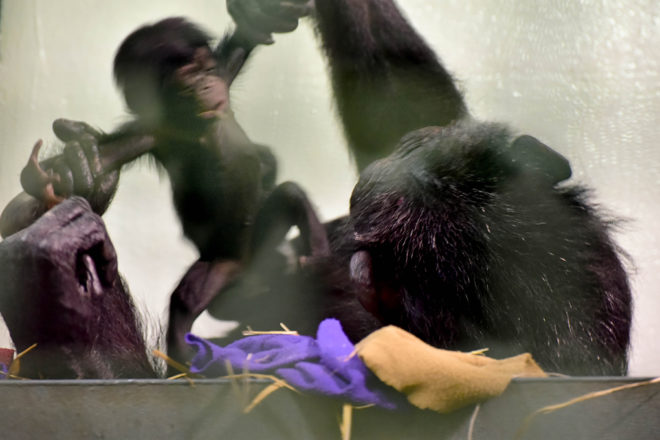
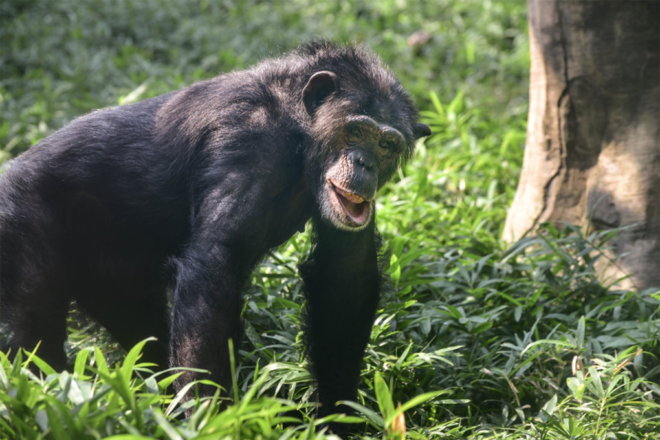
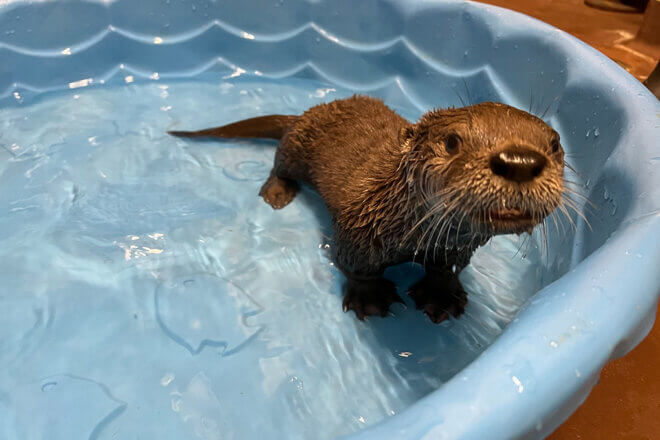
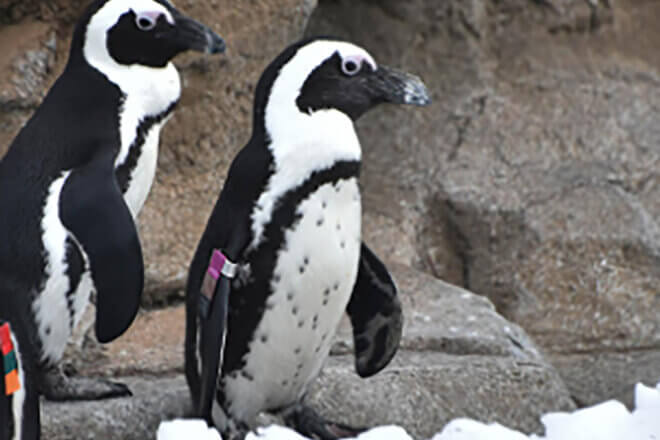
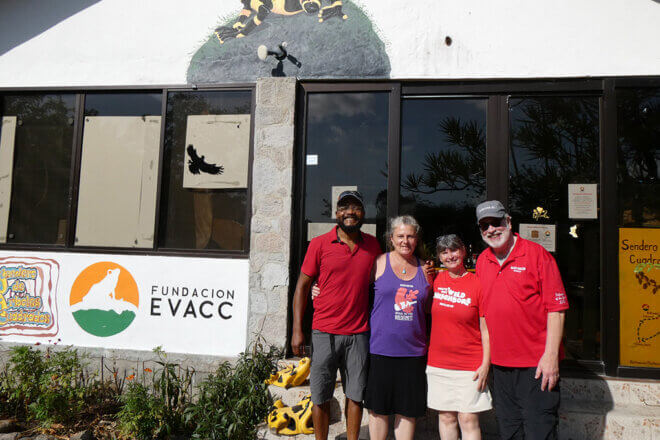

Share this article